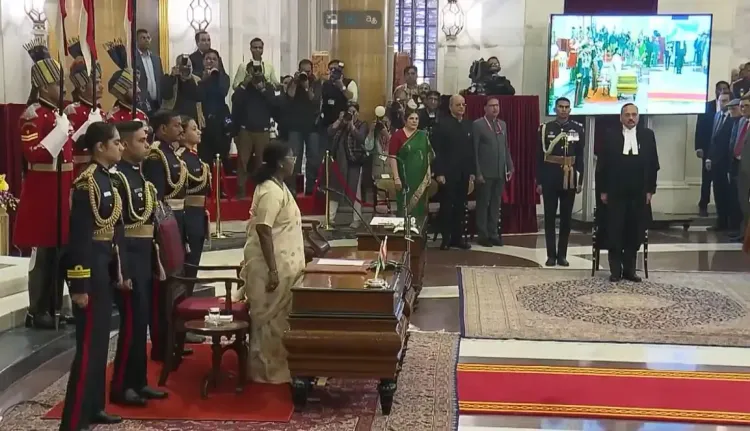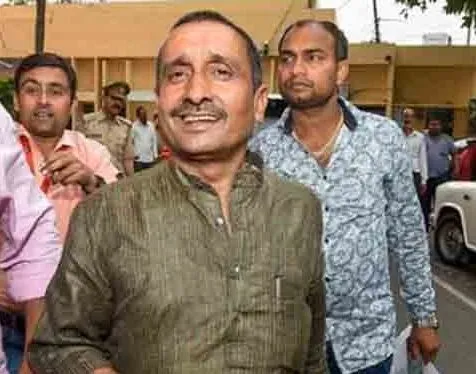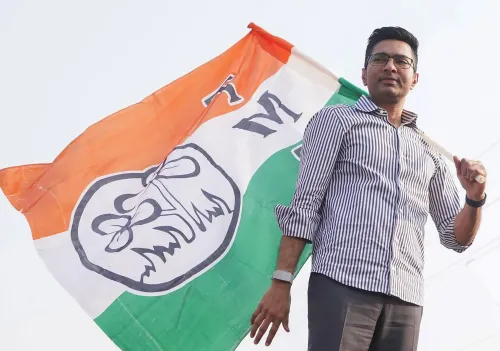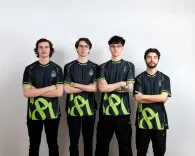Did President Murmu Administer Oath of Office to CJI Surya Kant?

Synopsis
Key Takeaways
- Justice Surya Kant is the 53rd Chief Justice of India.
- His term is set for 14 months.
- He aims to address case backlog in the judiciary.
- Plans for community mediation and Constitution Benches are in motion.
- Justice Kant emphasizes the importance of judicial integrity and efficiency.
New Delhi, Nov 24 (NationPress) President Droupadi Murmu officially administered the oath of office to Justice Surya Kant, who has now taken on the role of the 53rd Chief Justice of India (CJI). This event signifies the start of his 14-month tenure in the apex judicial position of the nation.
Justice Kant steps into this prestigious role after Justice Bhushan R. Gavai, who retired from the CJI office on Sunday upon reaching the age of 65.
In adherence to tradition, former CJI Gavai had recommended Justice Kant, the most senior judge of the Supreme Court, as his successor.
The appointment was made by the President “in exercise of the powers conferred by clause (2) of Article 124 of the Constitution,” following the outgoing CJI's recommendation.
Justice Surya Kant was born on February 10, 1962, into a middle-class family in Haryana. He initiated his legal career in Hisar in 1984 before transitioning to Chandigarh to represent cases in the Punjab and Haryana High Court.
Over his career, he has dealt with a wide array of constitutional, service, and civil matters, representing entities including universities, boards, corporations, banks, and even the High Court itself.
He became the youngest Advocate General of Haryana in July 2000, was designated as a senior advocate in 2001, and was appointed as a permanent judge of the Punjab and Haryana High Court on January 9, 2004.
Subsequently, he served as the Chief Justice of the Himachal Pradesh High Court from October 2018 until he elevated to the Supreme Court on May 24, 2019.
Since November 2024, he has held the position of Chairman of the Supreme Court Legal Services Committee. Previously, he served two terms on the Governing Body of the National Legal Services Authority (NALSA) and is affiliated with numerous judicial and legal service organizations.
In a media briefing prior to assuming his duties, the CJI-designate stated that addressing case backlog in the Supreme Court and across courts nationwide will be his top priority. He intends to collaborate with High Courts to pinpoint systemic issues affecting district and subordinate courts.
Additionally, he revealed plans to establish Constitution Benches comprising five, seven, and nine judges to deliberate on crucial cases that have long been pending.
Justice Surya Kant also stressed the importance of bolstering alternative dispute resolution methods, declaring, “Mediation will be effectively implemented to alleviate the burden of millions of cases.”
He advocated for community mediation, particularly to resolve disputes between state and central governments.
“A supportive environment must be cultivated for this,” he stated.
When questioned about the potential for artificial intelligence to help manage case backlogs, Justice Surya Kant acknowledged the challenges and concerns associated with AI. “While it has benefits, individuals prefer having their cases resolved by a judge,” he noted.
Earlier, on October 30, the Centre approved Justice Kant’s appointment as the next CJI. “In exercise of the powers conferred by clause (2) of Article 124 of the Constitution of India, the President has appointed Shri Justice Surya Kant, Judge of the Supreme Court of India, as the Chief Justice of India effective from November 24, 2025,” stated the notification from the Union Law and Justice Ministry. Justice Kant is set to conclude his term in the CJI office on February 9, 2027, completing a tenure of approximately 14 months.










